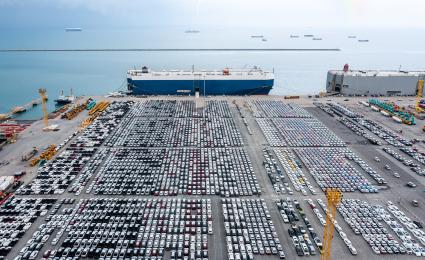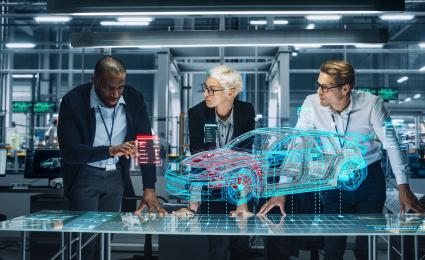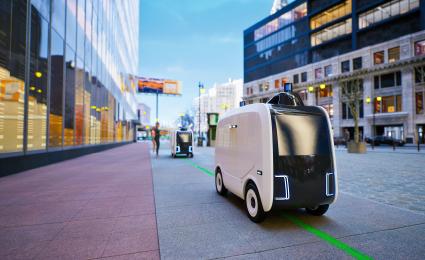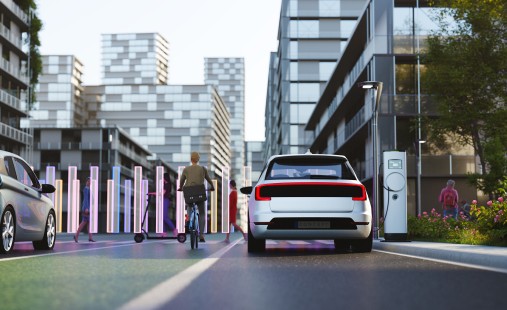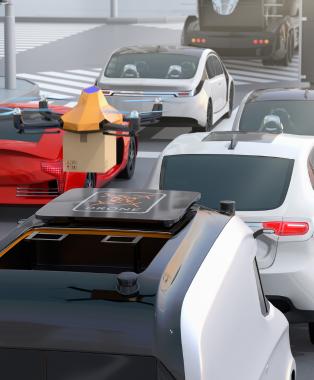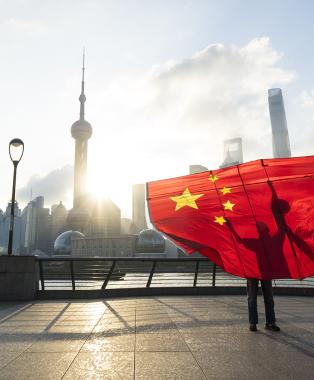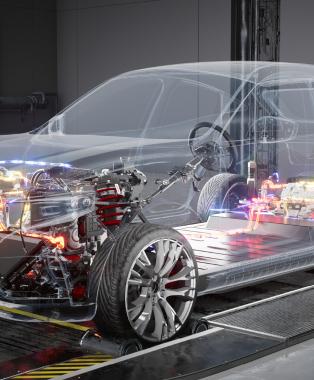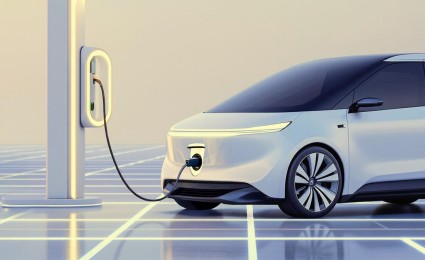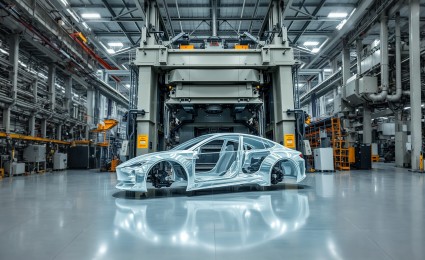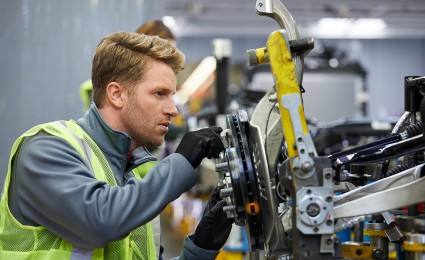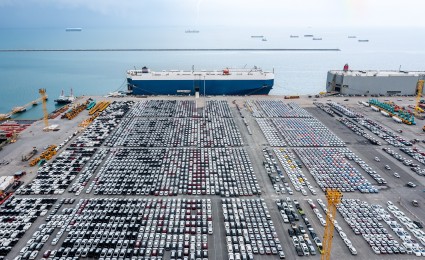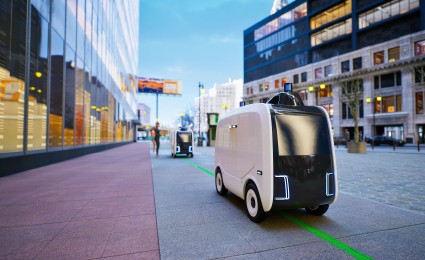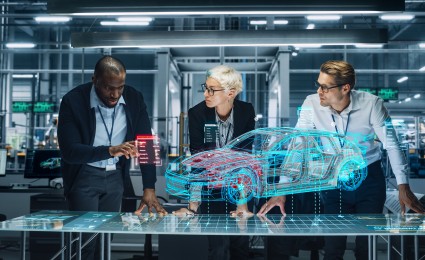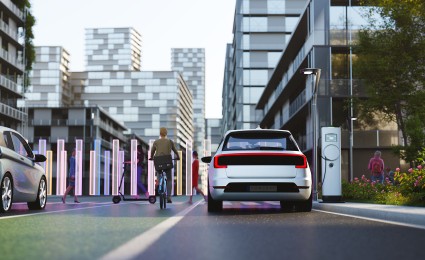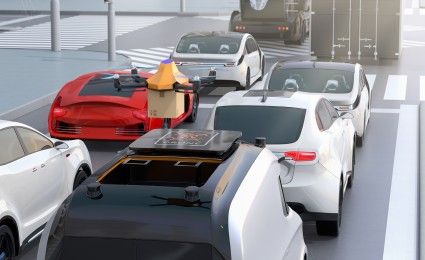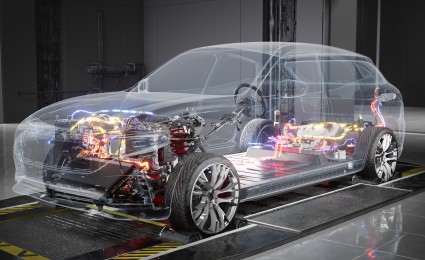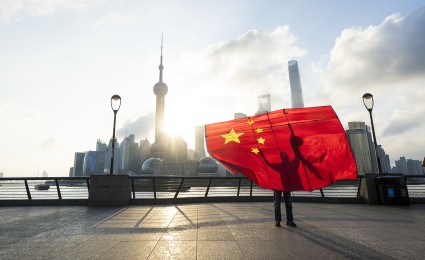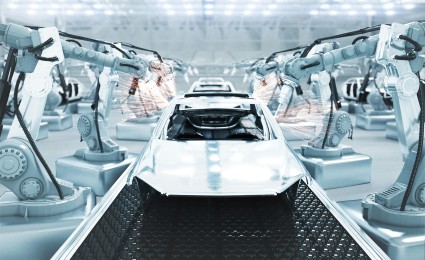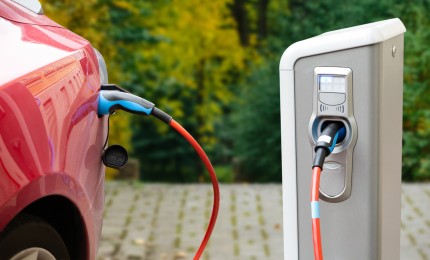Automotive 2040: Amid extreme uncertainty about future geopolitical developments, decision-makers at automotive players must carefully adjust their strategic choices.


Automotive outlook 2040
Pace yourself for the marathon ahead
Polarized
Artificial Intelligence
Autonomous driving
Connectivity
Electrified
Mobility
Products
Regions
OEMs
Suppliers
The automotive industry is in the midst of a major disruption, creating both challenges and opportunities for players. The shifting balance of power, spread of new technology and reshaping of supply chains means that automotive players of all types – OEMs and suppliers, incumbents and new market entrants – need to prepare themselves for the marathon ahead. The pace of change over the next decade and a half may prove overwhelming for some. For others, it could be the key to a prosperous future.
In our new analysis of the automotive industry through 2040 we identify four key directions of change that stand out from the many trends affecting the market, four mega-trends that we believe will shape the ongoing transformation of the industry through 2040. Their initials spell out the word PACE – the automotive world is becoming Polarized, Automated, Connected and Electrified. Automakers and suppliers need to understand these industry trends and their implications for their business as a matter of urgency. But more than that, they must incorporate them into their strategic planning for the next 15 years and beyond.
While all industry players are poised to face significant challenges over the coming years, it is evident that the automotive sector will remain one of the most dynamic and exciting fields to be in. The automotive industry's center of gravity will shift, technology will evolve, organizational structures will be transformed and innovative business models will emerge. Against this turbulent background, how can automakers and suppliers stay on top of the trends and make sure that they profit from the market growth? We present our in-depth analysis of the industry and our recommendations for how savvy players can pace themselves for the journey ahead.

Four developments shaping the auto industry
To understand what factors will drive the automotive industry in the period to 2040, we carried out an in-depth analysis of the global sector and the trends affecting it. We combined this data with insights from our global team of experts and extensive discussions with industry professionals and executives from both automotive manufacturers and players along the supply chain.
The results of our investigation were compelling. Over the next 15 years, we will see a growing polarization of automotive markets between West and East replacing the previous trend towards globalization. Automation will continue to transform the automotive industry and its supply chains, particularly with the use of autonomous vehicles and the widespread application of AI (artificial intelligence) in all parts of the vehicle production value chain, R&D, sales and aftersales. Vehicles will become increasingly connected, to all intents and purposes becoming computers on wheels. And the unstoppable rise of electrification will see EVs (electric vehicles) replacing those powered by ICEs (internal combustion engines) on our roads – indeed, our base-case scenario assumes a battery electric vehicle share of 71 percent in 2040, while our downside case assumes a share of 64 percent, subject to regional variation in EV penetration.
The future of private cars
Private vehicles are crucial to satisfying our mobility needs. So, if global demand changes or consumers' mobility preferences shift, the impact on vehicle production, the supply chain and vehicle sales can be huge. Automotive players and market analysts have for some time been predicting a drastic decline in the use of private vehicles and the eventual transformation of today's automotive players into little more than "mobility service providers" for consumers and industry. Many automakers have based their long-term strategy on this belief.
Our research paints a rather different picture. Although changes in mobility habits have occurred - both pre-pandemic and post-pandemic - and the trend towards on-demand mobility-as-a-service will continue, these trends are mainly limited to the largest metropolitan areas – regions that account for less than ten percent of miles travelled by car globally. We therefore do not expect to see any major disruption in automotive industry in the period to 2040. In fact, demand for mobility is predicted to continue growing in most regions of the world at a rate of around two to three percent a year, driven mainly by economic and demographic development. While auto manufacturers should carefully monitor developments in mobility behavior and demand for mobility solutions by consumers, the real changes in the auto industry in the period to 2040 will occur elsewhere.
The evolution of products and regions
What will the market for the automotive industry look like in the PACE world of 2040? We expect around 70 percent of vehicles globally to be BEVs (battery electric vehicles) and a further 20 percent hybrids. Almost all vehicles will be based on the SDV (software-defined vehicle) approach, allowing for new business models and a much closer integration of the vehicle into the consumer's world of smart devices. From a regional perspective, Western markets, Japan and Korea have already reached or will soon reach "peak auto", while we expect vehicle sales in China to grow by around six million through 2040. The Global South will likely establish itself as a growth market for the automotive industry thanks to its combination of economic growth and fast-growing young consumer populations.
For auto players, stagnating or declining volumes in Western markets, Japan and Korea mean that revenue growth will only be possible if they push up their sales prices still further and open up new revenue streams along the consumer lifecycle – for example, by continuing the trend towards higher vehicle segments. In China, players can rely on sales volume-driven growth and a fast-expanding revenue pool. Although industry-wide profit pools are more limited in the Global South due to the higher share of cheaper vehicles, players would be wrong to ignore these markets.
Navigating the transformation
What are the implications of the PACE trends for car manufacturers and suppliers in 2040? The balance of power is shifting towards Chinese players, yet there may be a way for Western OEMs to fight their way back. Pressure from ongoing macroeconomic and geopolitical tensions will grow, and technological shifts – especially in the areas of electrification and connectivity – will radically reshape both supply chains and the competitive environment. Automakers need to take strategic action is needed early on. For their part, suppliers to the automotive sector will see revenue pools developing at different speeds, with some auto market segments (ICEs) contracting, some stagnating (body, interior and chassis) and others expanding (BEV powertrain, high-voltage batteries and electronics/electrical). They, too, will need to adjust their strategy in line with these trends and take decisive action to capture or defend a fair share of the market.
Register now to receive the full publication "Automotive Outlook 2040", with a detailed forecast on sales volumes, revenue pools, BEV shares, and strategic priorities for OEMs and suppliers.

